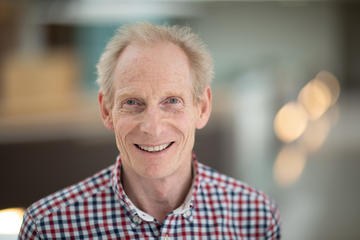We are pleased to announce that Professor Kim Nasmyth from the Department of Biochemistry has been elected as a member of the National Academy of Sciences (NAS).

Professor Kim Nasmyth
Based in the US, the NAS is an NGO co-founded by Abraham Lincoln in 1863, aiming to provide the national government with "independent, objective advice" on science, engineering, and medicine. The NAS comprises a diverse group of leading experts who are elected by their peers for their distinguished achievements and contributions to their respective fields.
Prof. Nasmyth (FRS) is a geneticist best known for his fundamental discoveries in understanding how chromosomes are segregated during cell division. This is highlighted by Prof. Nasmyth's co-discovery of the anaphase-promoting complex (APC), a molecular machine that instigates chromosome segregation during cell division. This finding then led to his discovery of a specialized group of proteins called cohesins, which are essential for holding sister chromosomes together prior to their orderly segregation during cell division. These and other seminal discoveries have revolutionized our understanding of how cells ensure that their genetic information is faithfully passed on during cell division.
In recognition of these discoveries, Prof. Nasmyth has previously received the Louis-Jeantet Prize for Medicine, the Croonian Medal of the Royal Society, the Gairdner Foundation International Award, and the Breakthrough Prize in Life Sciences.
Beyond his ground-breaking research contributions, Prof. Nasmyth has also played a key leadership role in Oxford as the Whitley Professor and Head of the Department of Biochemistry. In this role, he transitioned the Department of Biochemistry into its new state-of-the-art research facilities just off South Parks Road and developed a world-class community of chromosome biology researchers which continues to thrive.
Prof. Nasmyth now becomes one of about 500 international members in the Academy. In reflecting on this important election, Nasmyth said, "It's very nice; it connects you to a community." Furthermore, he hopes that the NAS "might conceivably ask for advice on a policy — that might be the most fulfilling thing that could happen."
We wholeheartedly congratulate Prof. Nasmyth on his election and this important recognition.
Francis Barr & Rob Klose
5th May 2023